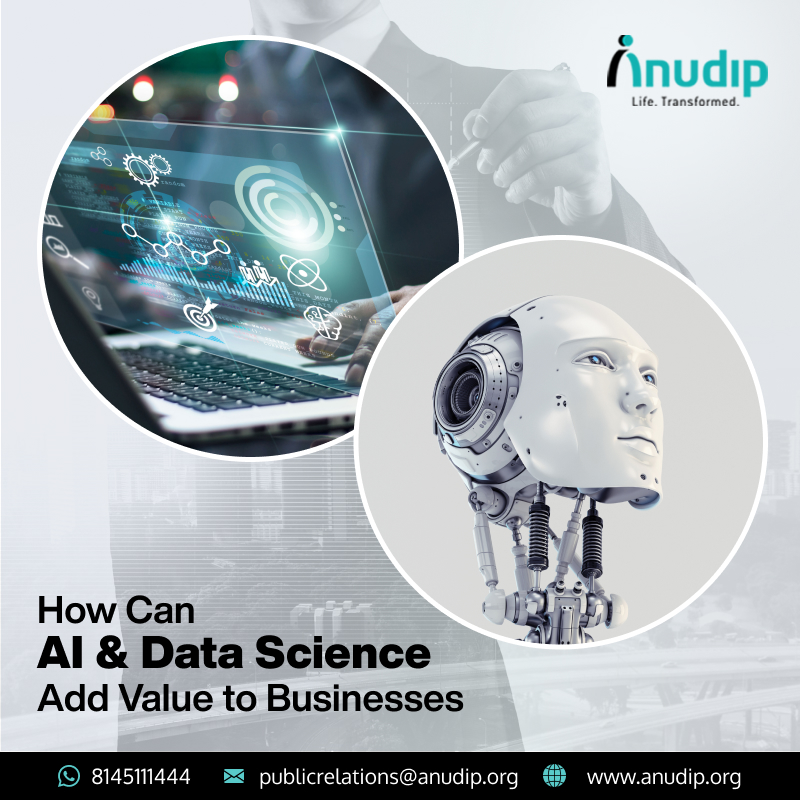
Data is the new oil, so goes the saying. It underscores the importance of data in gaining insights, making informed decisions, and powering businesses across domains. At the same time, artificial intelligence, or AI, is transforming digital technology into a three-dimensional physical environment. Today, AI is not part of a science fiction dystopia but has become commonplace in our daily lives—read Alexa, for example. In business, artificial intelligence has a wide usage and can help companies maintain a competitive edge. It has given rise to a demand for AI experts by businesses cutting across domains. So, people looking for suitable jobs in this futuristic technology are opting for job training at low-cost in West Bengal and India. However, before delving deeper into the role of AI in helping businesses, it is important to know what it is all about.
Artificial intelligence can be said to be a computer system or software that engages in humanlike activities. These may include learning, processing, analyzing, interpreting, monitoring, and problem solving. Machine learning can be said to be the most common type of AI and is used to process large quantities of data rapidly. Endowed with self-learning ability, machine learning algorithms can improve significantly when fed vast troves of data, usually captured by the Internet of Things and other connected devices. AI and machine learning can quickly analyze data as it is received and identify anomalies and patterns in it for stakeholders to take suitable decisions. For instance, if a manufacturing plant is operating at reduced capacity, the machine learning algorithm can identify it and notify decision makers to send a maintenance team.
How can AI help businesses?
Artificial intelligence can serve as a supporting tool that can process and analyze troves of data rapidly and present insights to the human user. This way, it can help streamline the decision-making process. As opposed to traditional software, AI can present a wider latitude of decision-making ability, which in today’s competitive business environment, can be of great help. For instance, AI-powered software can study and evaluate the shopping behavior of customers over a period of time and suggest personalized offers. Also, it can monitor the functioning of a wind turbine and predict its need for repairs. Some of the common uses of AI are in the realms of cybersecurity, internet searches, customer relationship management, and personal assistants.
Artificial intelligence is changing CRM software systems, such as Salesforce, by transforming them into auto-correcting and self-updating systems. Also, by identifying patterns in customers’ search behaviors, AI can provide them with relevant information and customizable experiences. For small businesses, AI can be a boon as they can sift through vast troves of customer data to target them with personalized offerings. In fact, the paradigm is shifting from users Googling information to users being provided with information at the time and place of their choice. Further, AI bots are increasingly being used as personal assistants to maintain calendars, manage emails, and offer recommendations for streamlining processes. These bots are helping customers answer queries 24 x 7, which is considered well-nigh impossible to be done manually. Since routine tasks are taken care of by AI-powered bots, employees can focus more on improving the core offerings and implementing strategies for growth.
How can data science help businesses?
With businesses generating big data from various touchpoints, data scientists come into play to eke out actionable insights from huge troves of data. They can help businesses make huge savings by transforming legacy systems into highly efficient ones. Even statistics point out the transformative role data science can play for businesses. For instance, McKinsey predicts the US healthcare system will reduce spending to the tune of $300 billion to $450 billion. Contrast this with how bad data can cost the US around $3 trillion a year. The many ways data science can add value to businesses are as follows:
Conclusion
Today, there is a surplus of business data being generated from various devices and channels. AI-led data science can help businesses mine such vast amounts of data and arrive at decisions quickly. By gaining insights across workflows, it can add value to businesses by helping them make better-informed decisions. In a competitive market, such high-quality insights at the granular level can be the difference between success and failure. No wonder, AI training has drawn attention from various quarters, whereby businesses can hire experts and implement AI in their workflow. In fact, candidates looking to make a career in futuristic technologies can opt for low cost job training in West Bengal and India.